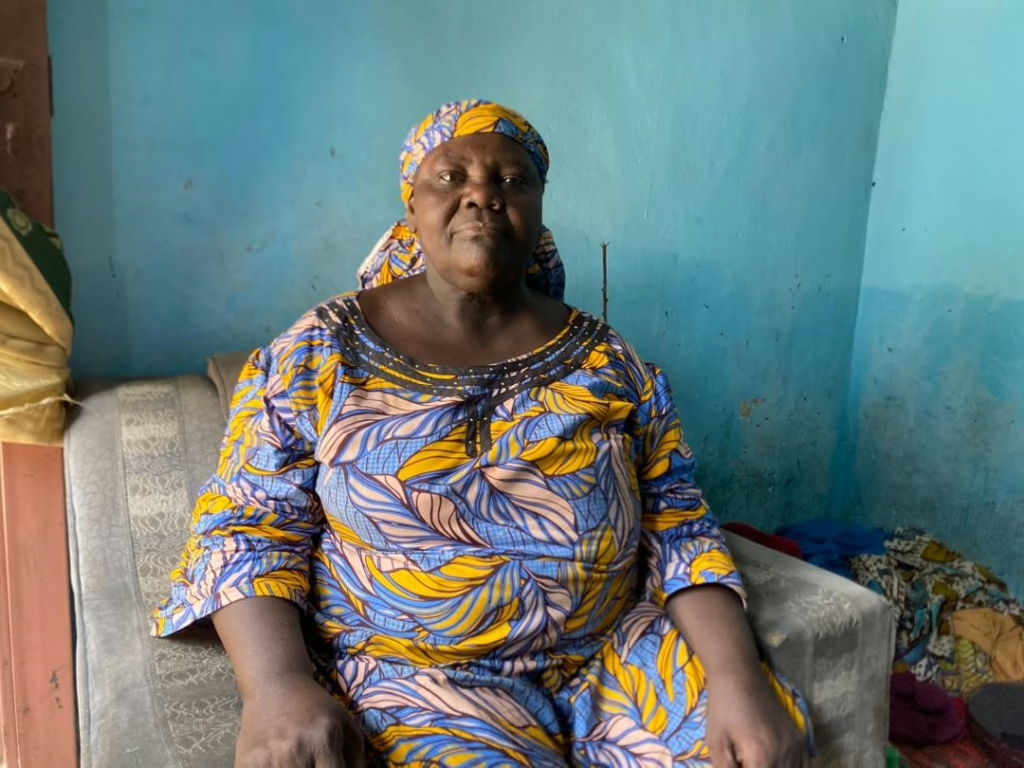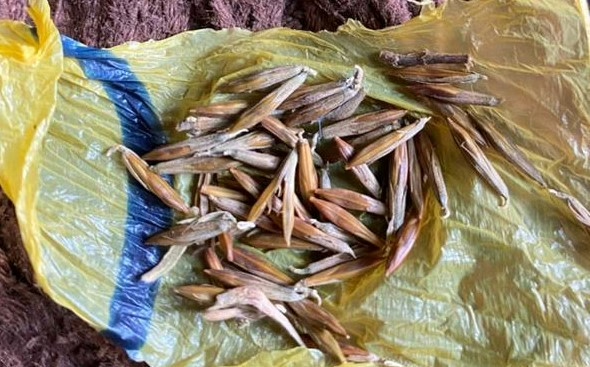For generations, many women in Kano State placed their trust in rituals such as rubutu and herbal seeds, believing these practices would guarantee safe delivery.
The rituals were passed down through families and communities, reinforced by culture, fear, and faith.
Rubutu, in particular, stood out as one of the most widespread traditions.
Rooted in interpretations of Islamic healing practices, it involved inscribing verses from the Qur’an and special supplications onto a wooden slate.
The writing would then be washed into water, sometimes mixed with seeds such as Sansan, and consumed by the expectant mother.
It was also applied to her body, with the belief that it would ease labour pains and shield both mother and child from complications.
Some scholars within the community viewed rubutu as a legitimate practice, consistent with the Qur’an and Sunnah, while others strongly questioned its misuse, especially when it was treated as a replacement for medical care.
For many women, however, the ritual carried a spiritual weight that made it difficult to resist. Refusing to drink the water often invited warnings of misfortune or even accusations of disobedience.
Yet, despite the trust placed in these practices, reality told a harsher story.
While some women survived childbirth and attributed their safe delivery to rubutu, others endured life-threatening complications. In too many cases, mothers or babies, or both, were lost.
“Looking back, we now see it was just chance,” admitted a mother in Gwale Local Government Area. “We thought it was protection, but in truth, it was a gamble with our lives.”
Today, a growing number of women in Kano are openly challenging these long-held beliefs.
With the support of health campaigns, community advocacy, and shifting mindsets among men, they now champion antenatal care and hospital deliveries as the safer, life-saving alternative.
Health experts note that this shift is critical. Encouraging women to seek skilled care is therefore seen as a key step in reducing preventable deaths.
In Gwale and other LGAs, rubutu water remains one of the most common myths associated with childbirth.
But more women are beginning to see through its promises.
What once felt like an unshakable tradition is gradually giving way to a new culture of safety, one that prioritizes professional care, modern medicine, and the well-being of both mothers and babies.
Inside the World of Traditional Birth Practices: Saratu Ja’en Speaks
Saratu Ja’en, now a retired Traditional Birth Attendant (TBA), spent decades serving women in Gwale Local Government Area.
Over the years, she facilitated the delivery of more than 50 women, relying not on modern medical practices but on rituals deeply rooted in culture and spirituality.
One of the most common practices she performed involved the preparation of rubutu, a remedy believed to ease childbirth and protect both mother and child.
Explaining the process, Saratu said:
“We write verses from the Qur’an on a wooden slate using a special ink. The writing is then washed into a bowl of water.
“To this, we add a small seed known as Sansan in Hausa.
“Once the seeds are mixed with the water, they break apart, and a liquid blends with the water.
“When it is ready, we give it to the woman in labour to drink, and we rub some of it on her body so she can have an easy delivery.
“We believe that once she drinks it, both she and the baby will be safe from complications.”
For Saratu and many others, rubutu was never viewed as mere tradition. It carried heavy spiritual weight.
Refusing to partake in the ritual was often considered a sign of disobedience to TBAs and elders, and women were warned that rejection could invite misfortune or even a curse.
As a result, most expectant mothers submitted without question. Out of fear, respect, or belief, they drank the mixture and placed their hopes in it.
In some cases, women survived childbirth, which reinforced community trust in the practice.
But as Saratu herself admitted, many outcomes were left to chance.
“Some women gave birth safely, and people would say it was because of the rubutu. But when complications arose, nothing we did could save them.
“Sometimes, mothers died, or the babies were lost. Still, people believed we had done our best.”
Public health experts point out that while rubutu reflects a deep cultural reliance on faith and tradition, it also illustrates the dangers of unskilled care during childbirth.
This reliance on TBAs and spiritual remedies has contributed to high maternal and neonatal mortality rates.
Today, Saratu is retired, but her story reflects the generational tension between traditional practices and modern medicine.
While some women continue to trust TBAs, an increasing number are shifting towards hospitals, often after witnessing the tragic consequences of relying solely on rituals like rubutu.

Usman Aminatu, a resident of Ja’en, once subscribed to the myths and misconceptions surrounding childbirth and facility-based deliveries.
For her, these beliefs were not mere tales but guiding principles that shaped her decisions, one of which nearly cost her life.
She recalled the day she delivered her first child, relying on rubutu and herbal concoctions rather than seeking medical care.
“I was 29 years old then,” she told Stallion Times.
“It was an ordinary day. I was busy with my household chores when I suddenly realized it was time for childbirth. Instead of going to the hospital, I called for Hajiya Saratu, the elderly traditional birth attendant in our community.”
As her labour pains intensified, Aminatu followed the procedures administered by Hajiya Saratu and eventually gave birth to a baby boy.
At the time, she attributed her safe delivery to the rubutu, but in hindsight, she admits it was nothing more than chance.
“I could have bled to death. I could have lost the baby, and no one would have been held accountable,” she reflected.
“Today, I realize it wasn’t the herbs or the rubutu that saved me, it was simply luck. If I had developed complications, the outcome would have been tragic.”
Aminatu explained that if she had been better informed then, she would never have risked delivering at home.
She now recognizes how ignorance, reinforced by cultural and traditional practices, has endangered the lives of many women.

Why Sani Bala Stopped Supporting Home Deliveries
For decades, myths and misconceptions about childbirth have shaped the lives of families in Ja’en, Gwale Local Government Area.
Among those once guided by these beliefs was 51-year-old Sani Bala.
Bala admitted that he used to encourage his wife to deliver at home, convinced that the experience of the community’s traditional birth attendant, Hajiya Saratu, was sufficient to guarantee safe delivery.
Like many men in his neighborhood, he believed hospital births were unnecessary.
“At that time, I thought it was the norm,” Bala recalled.
“Almost every man around me encouraged his wife to give birth at home. We trusted the mixtures and rituals.”
But with time, Bala began to see a painful reality.
He witnessed cases where women developed complications and never returned home alive.
In some households, babies were lost during delivery, while in others, both mother and child died.
The so-called expertise of traditional birth attendants, he realized, was not enough to prevent tragedy.
These bitter experiences changed his perspective.
Today, Bala is an advocate for safer childbirth practices.
He ensures his wives attend antenatal care and deliver in hospitals under professional supervision.
“My wife now attends antenatal services regularly, and I always encourage her.
“She tells me she feels stronger, healthier, and more confident. Since she started delivering at the hospital, there is no more fear.
“The doctors are there, and we know both mother and baby are safe,” he told Stallion Times.
Bala noted that he is not alone in this transformation. Other men in Ja’en are gradually shifting their mindset, supporting their wives in seeking medical care during pregnancy.
“We were really living in darkness before,” he admitted.
Public health experts say Bala’s story reflects a broader challenge in Kano State, where cultural norms and reliance on traditional birth attendants have historically contributed to high maternal and child mortality.
According to the 2018 Nigeria Demographic and Health Survey (NDHS), only about 26 percent of births in Kano State took place in health facilities, a figure that experts say underscores the urgent need for awareness campaigns, especially targeting men who often make household decisions.
For Bala, the lessons are personal. “I tell other men that if they truly love their wives, they should support them to deliver at the hospital.
“We have already lost too many mothers and babies to ignorance,” he said.
Government’s Stand On Childbirth
Kano State Commissioner for Health, Dr. Abubakar Labaran Yusuf, dispelled myths surrounding childbirth practices, describing them as mere beliefs without any scientific basis.
“All these beliefs are baseless, and most of them were practiced in the past.
“With the enlightenment programs we are carrying out on radio, television, and within communities, people are now becoming better sensitized,” he affirmed.
He further addressed misconceptions about reproductive health, particularly child spacing.
“There are some people who used to believe that Islam is against practices like childbirth spacing, but these are all baseless claims, because Islam actually supports this,” Dr. Labaran noted.
The Commissioner also disclosed that maternal delivery kits for pregnant women remain available in the state.
According to him, the government is committed to scaling up distribution across all 44 local government areas in Kano to promote safe delivery practices.
“Every pregnant woman deserves to deliver safely.
“With these kits, we are reducing risks and ensuring mothers have the essentials they need.
“Soon, these kits will reach every local government in the state,” he assured.
Every pregnancy deserves care, every birth deserves safety.

